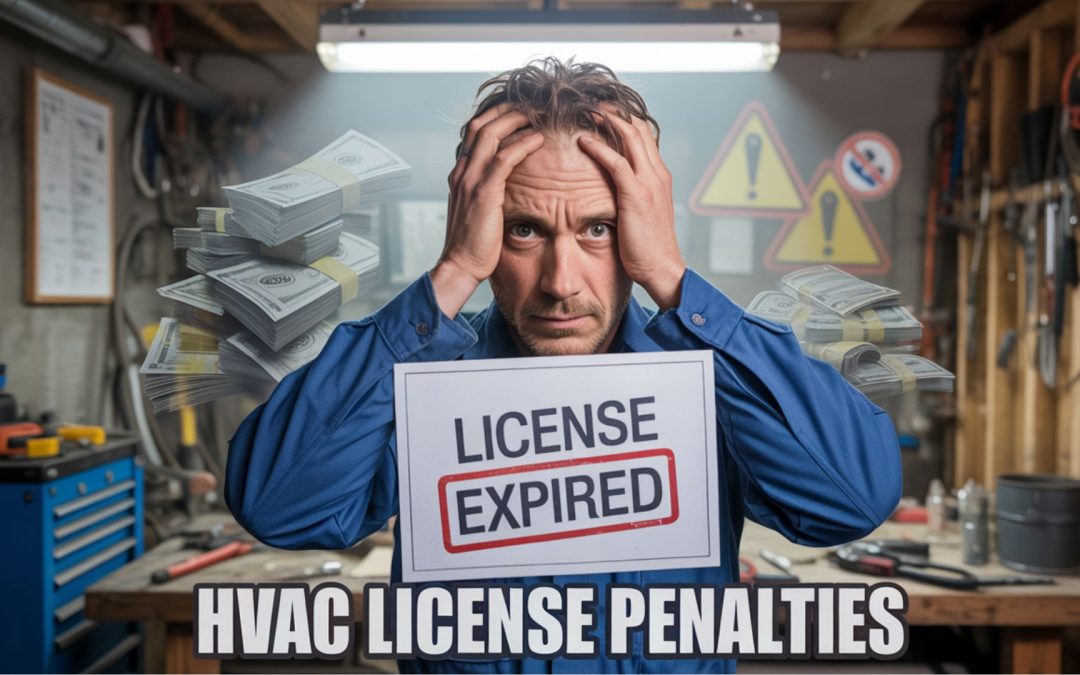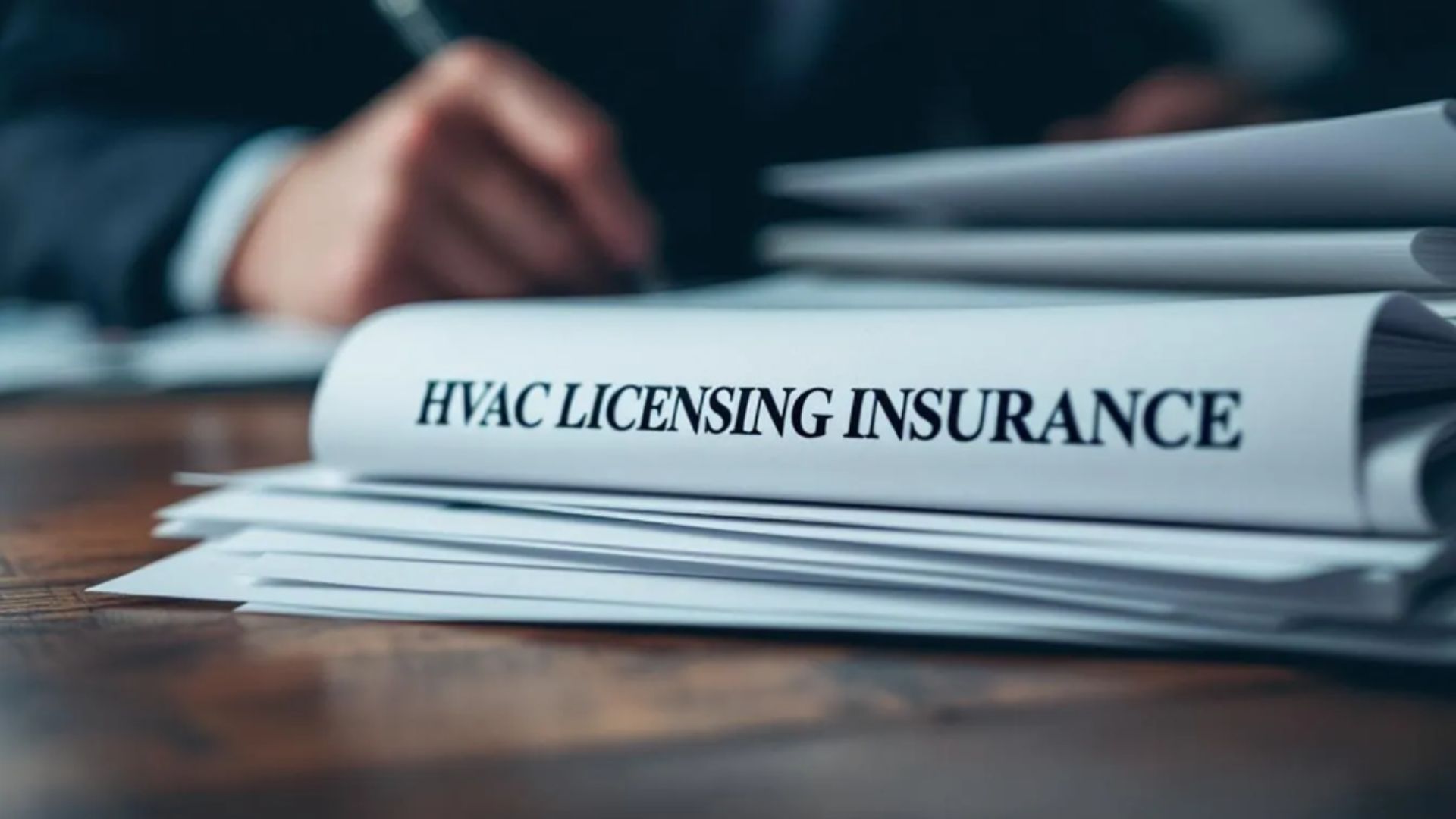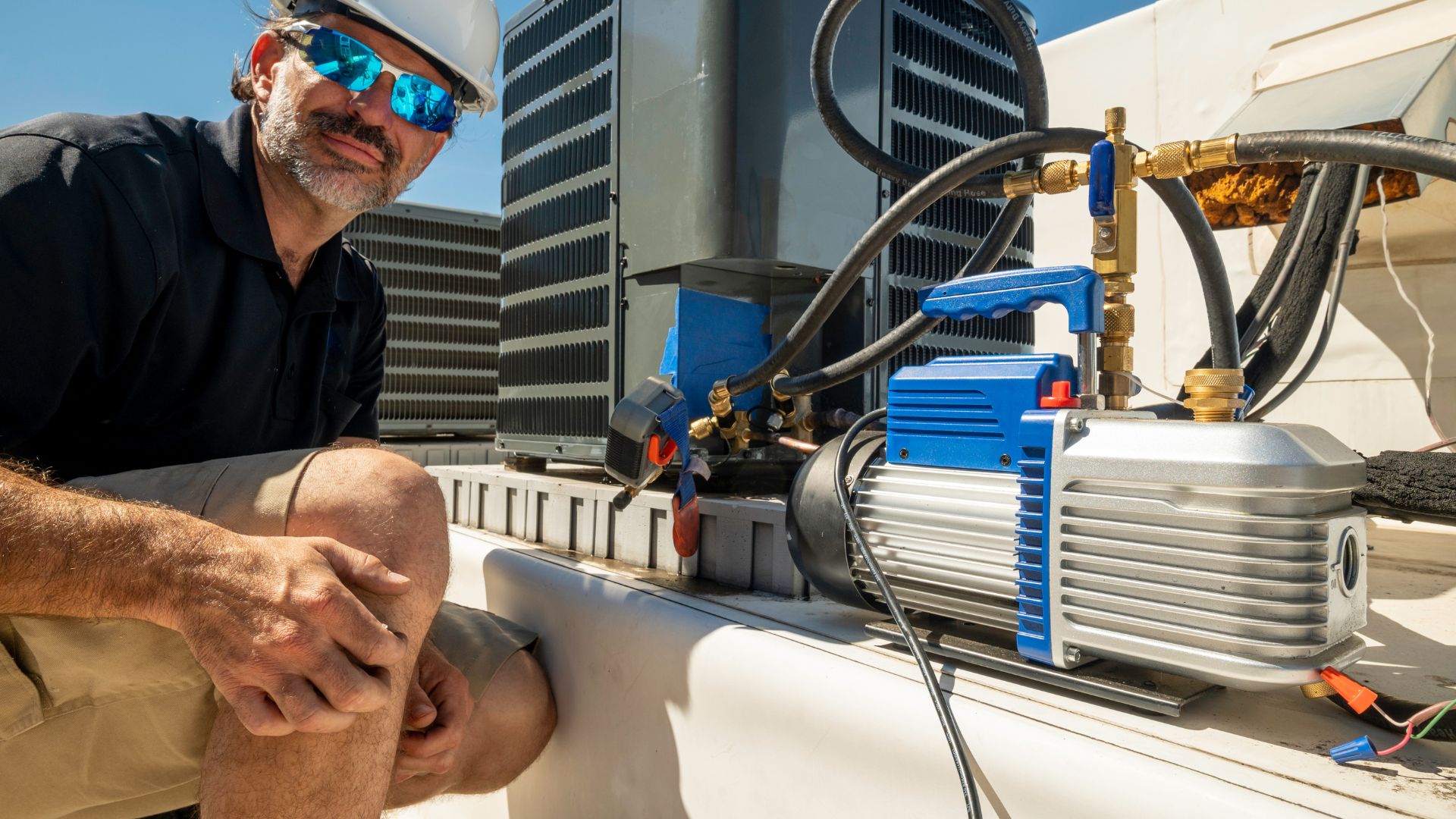Failing to renew your HVAC license can result in fines, work suspension, and damage to your professional reputation. Understanding the penalties for failing to renew your HVAC license is crucial for maintaining your career. This blog breaks down the penalties and gives tips on how to stay compliant.
Key Takeaways
- Failing to renew your HVAC license leads to financial penalties, lost business opportunities, and potential costs exceeding $10,000.
- Operating without a valid HVAC license results in legal consequences, work suspension, and increased liability risks, including potential lawsuits.
- Maintaining an active HVAC license protects your professional reputation, allows you to secure lucrative contracts, and ensures compliance with legal regulations.
Financial Repercussions
Failing to renew your HVAC license can lead to significant financial penalties, impacting your finances and business operations severely. Late fees start after the grace period and increase the longer your license remains expired, substantially inflating your total cost. Timely renewal is crucial to avoid these escalating licensing fees.
An expired HVAC license for an extended period may incur additional costs like re-examination or recertification fees, further burdening your finances. The consequences can range from simple fines to potential costs up to $10,000, depending on the duration of the lapse and state regulations.
Beyond fines and fees, an expired license can lead to lost business opportunities. Clients prefer licensed professionals, and an expired license can result in canceled contracts and missed new projects, devastating HVAC contractors relying on steady work to maintain operations. Reviewing common mistakes to avoid during HVAC license renewal can help you prevent costly errors that lead to financial setbacks.
The financial repercussions of failing to renew your HVAC license are significant and multifaceted, including late fees, re-certification costs, and lost business opportunities. To avoid these pitfalls, proactively monitor your license status and renew it well before the expiration date.
Work Suspension and Legal Risks
Operating without a valid HVAC license can lead to severe legal consequences, including the immediate risk of work suspension, halting business operations, and causing significant financial losses. Legal compliance is critical for running a successful HVAC business, and failing to renew your license jeopardizes this legal requirement, resulting in a violation.
Operating without a current HVAC license can result in fines, sanctions, and even criminal charges, escalating quickly and increasing liability and potential damage to your business’s reputation. The lack of a valid license heightens the risk of facing lawsuits related to accidents or damages, compounding legal and financial troubles.
Contractors lacking proper insurance coverage due to an expired contractor license can face exorbitant out-of-pocket costs for damages, which can cripple your business. Therefore, maintaining a valid HVAC license safeguards your livelihood and ensures the long-term viability of your business. Refrigeration contractors play a crucial role in this industry.
Damage to Professional Reputation
Your professional reputation is a valuable asset as an HVAC contractor. An expired HVAC license can severely damage this reputation, diminishing your perceived professionalism and expertise, leading to a loss of clients and reduced business opportunities.
A lapsed HVAC license can have several negative consequences:
- Restricts your opportunities to bid on projects, as clients prefer licensed professionals.
- Results in lost income and canceled contracts.
- Damages your professional reputation and financial stability.
- Many clients demand proof of insurance coverage before hiring.
- Operating without an active HVAC license can lead to losing valuable contracts.
In the competitive HVAC industry, maintaining a strong professional reputation is crucial. An expired license can tarnish your reputation, making it difficult to attract new clients and retain existing ones. Ensuring your HVAC license remains active is essential for sustaining and growing your business.
Insurance and Liability Issues
Failing to renew your HVAC license can severely impact your liability insurance coverage, a critical component of legal compliance and safety practices in the HVAC industry. Without an active license, your liability insurance coverage may be jeopardized, leaving you vulnerable to financial risks.
Working without an active HVAC license increases the risk of non-coverage for damages under liability insurance, potentially resulting in significant out-of-pocket expenses. Legal claims from homeowners and insurers may also arise if you are found to be operating without a valid license.
Maintaining your HVAC license ensures your liability insurance remains valid and effective, protecting you from financial risks and ensuring compliance with legal and safety regulations, providing peace of mind to both you and your clients with a master HVAC license.
Steps to Avoid Penalties
Avoiding penalties for failing to renew your HVAC license requires proactive measures and diligent compliance with licensing requirements. Monitor your license expiration date, complete continuing education requirements, and submit renewal applications early to stay compliant and avoid penalties.
Monitor License Expiration Dates
Regularly monitor your license expiration date to plan and initiate the renewal process well in advance, ensuring timely license renewal and avoiding last-minute complications. Setting reminders for your HVAC license expiration date is a practical way to stay on top of this critical deadline.
Licensing boards often provide online tools to check your license status and expiration date. Utilizing these resources helps keep track of multiple licenses if you operate in different states or hold various certifications, crucial for maintaining your active status and avoiding the repercussions of a license expired and when your license expires.
Submit Renewal Applications Early
Submitting renewal applications early avoids penalties associated with late renewals. Completing the renewal process 30–60 days before your license expiration date ensures ample time to address any issues that may arise. Learning and applying strategies to complete your Texas HVAC continuing education for license renewal will help ensure you meet all educational requirements well ahead of the deadline.
Processing times for a renewal application can vary, and submitting a new application early mitigates the risk of delays. Timely submission helps avoid additional costs and guarantees your license remains active, allowing you to continue your work without interruption.
Reinstatement Process for Expired Licenses
If your HVAC license has expired, understanding the reinstatement process is vital for recovering your credentials. It involves meeting specific eligibility criteria, completing necessary forms, and paying overdue fees and penalties to restore your license to active status.
Eligibility Criteria for Reinstatement
Eligibility for reinstatement typically includes submitting specific documentation and complying with state regulations. The maximum expiration period for license reinstatement without applying for a new license is five years. Some states require additional requirements, such as criminal background checks and proof of relevant work experience or vocational training.
Different states may have unique exam formats or continuing education mandates affecting the reinstatement process. For instance, individuals whose licenses have expired for less than three years must complete all required CEU courses again for reinstatement. Understanding these requirements is crucial for a smooth reinstatement process.
Completing Reinstatement Forms
Accurately completing reinstatement forms is crucial to avoid delays. Applicants must include their license number and proof of staying compliant when filling out the reinstatement application form. Ensuring all required documentation is submitted correctly can expedite the process and help you provide proof to regain active status.
State licensing boards often provide detailed instructions on completing these other forms for approval. Following these guidelines meticulously prevents common errors that may lead to delays.
Review all information carefully and ensure all sections of the subject form are completed accurately before submission.
Paying Overdue Fees and Penalties
To reinstate an expired HVAC license:
- Payment of all overdue fees and penalties is required.
- A late renewal within the grace period incurs no additional penalties.
- Renewing after the grace period incurs an extra late renewal fee based on the length of the expiration and renewal fees.
- Renewing within the grace period helps avoid additional fees and penalties.
If the HVAC license has expired for over 365 days, consider the following for reinstatement:
- You may need to retest.
- Retaking all continuing education hours could be required.
- Understand the financial obligations associated with reinstatement for effective planning and budgeting.
- Pay all applicable fees promptly to ensure a smoother process.
Benefits of Keeping Your HVAC License Active
Keeping your HVAC license active offers several benefits:
- Ensures compliance with legal regulations
- Secures contracts that offer higher earnings
- Allows HVAC professionals to bid on more lucrative projects
- Expands business opportunities
Maintaining an active license facilitates long-term career advancements, demonstrating your commitment to professionalism and industry standards, enhancing trust between clients and HVAC professionals. An up-to-date license provides peace of mind, knowing you are operating within the legal framework and protecting your business from potential risks while ensuring you remain in good standing.
For newcomers entering the trade, understanding what’s required before launching a career is vital. Exploring what to consider before starting an HVAC career can help you make informed decisions that set you up for success and long-term compliance.
In the competitive HVAC industry, an active license is a testament to your expertise and reliability. It sets you apart from unlicensed contractors and builds credibility with clients, ensuring you remain a preferred choice for HVAC services.
Protect Your Career Through Timely License Renewal
Failing to renew your HVAC license on time can lead to costly penalties, work stoppages, and potential damage to your professional reputation. Staying proactive with your renewal ensures uninterrupted work, compliance with state regulations, and the ability to maintain client trust while avoiding unnecessary legal or financial consequences.
At State Approved Continuing Education, we make HVAC license renewal in Texas simple and stress-free. Our state-approved courses are designed to help you meet all requirements efficiently, so you can focus on serving your customers and growing your business without worrying about compliance setbacks. Learn why it’s beneficial to start your HVAC continuing education early in Texas.
Frequently Asked Questions
What are the financial penalties for failing to renew an HVAC license?
Failing to renew an HVAC license can result in escalating late fees, re-examination or re-certification fees, and total costs that may reach up to $10,000. It’s essential to renew on time to avoid these significant financial implications.
What legal risks do I face if I work with an expired HVAC license?
Working with an expired HVAC license exposes you to significant legal risks, including hefty fines, potential criminal charges, and increased liability in case of accidents or disputes. It’s crucial to maintain a valid license to avoid these consequences.
How can failing to renew my HVAC license affect my professional reputation?
Failing to renew your HVAC license can significantly harm your professional reputation by reducing client trust, limiting project bidding opportunities, and potentially leading to financial losses. Maintaining your licensure is essential to uphold your credibility in the industry.
What steps can I take to avoid penalties for failing to renew my HVAC license?
To avoid penalties for failing to renew your HVAC license, consistently monitor your expiration date, fulfill continuing education requirements, and submit your renewal application early. These steps will ensure you stay compliant and avoid any disruptions in your practice.






